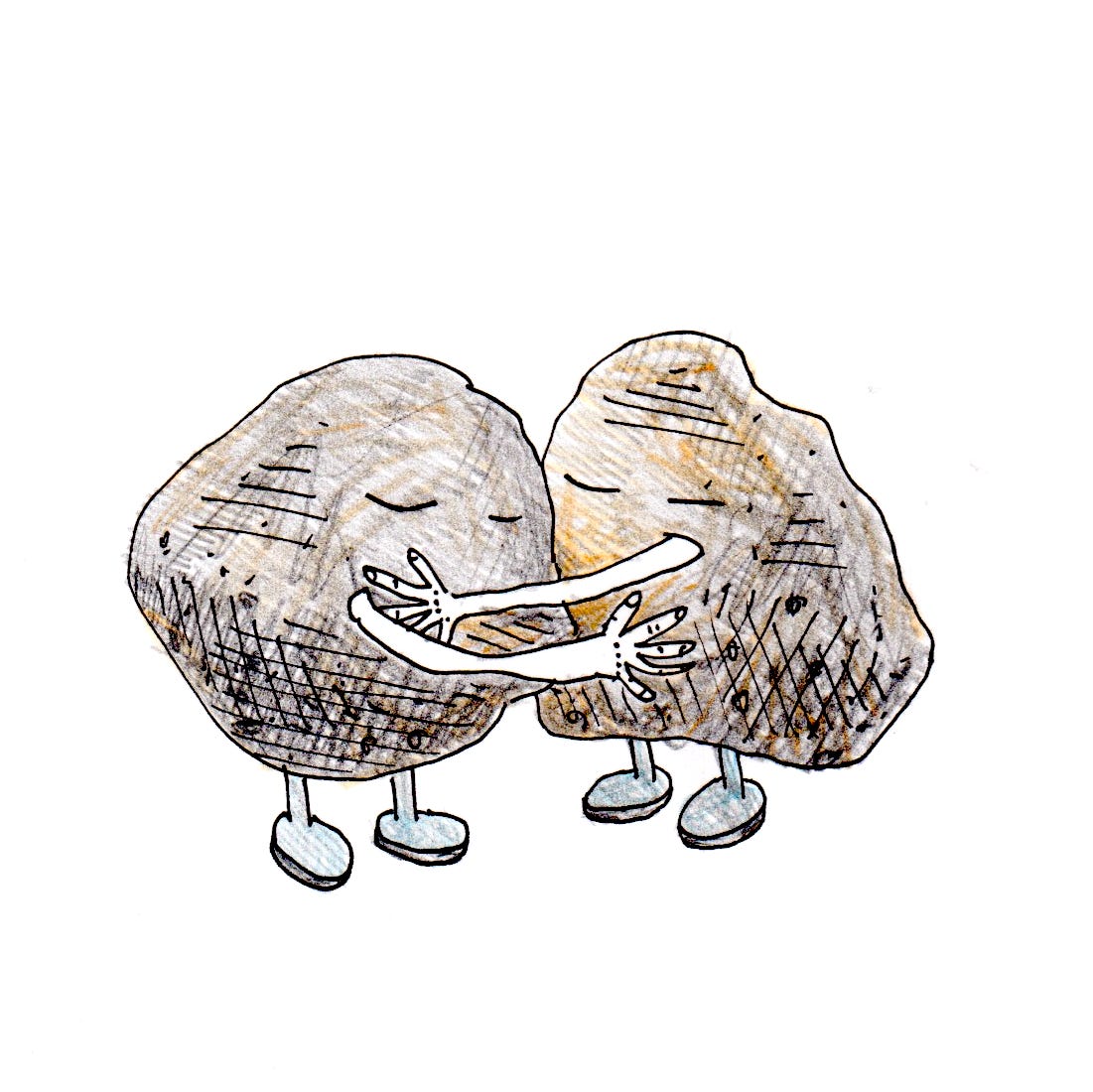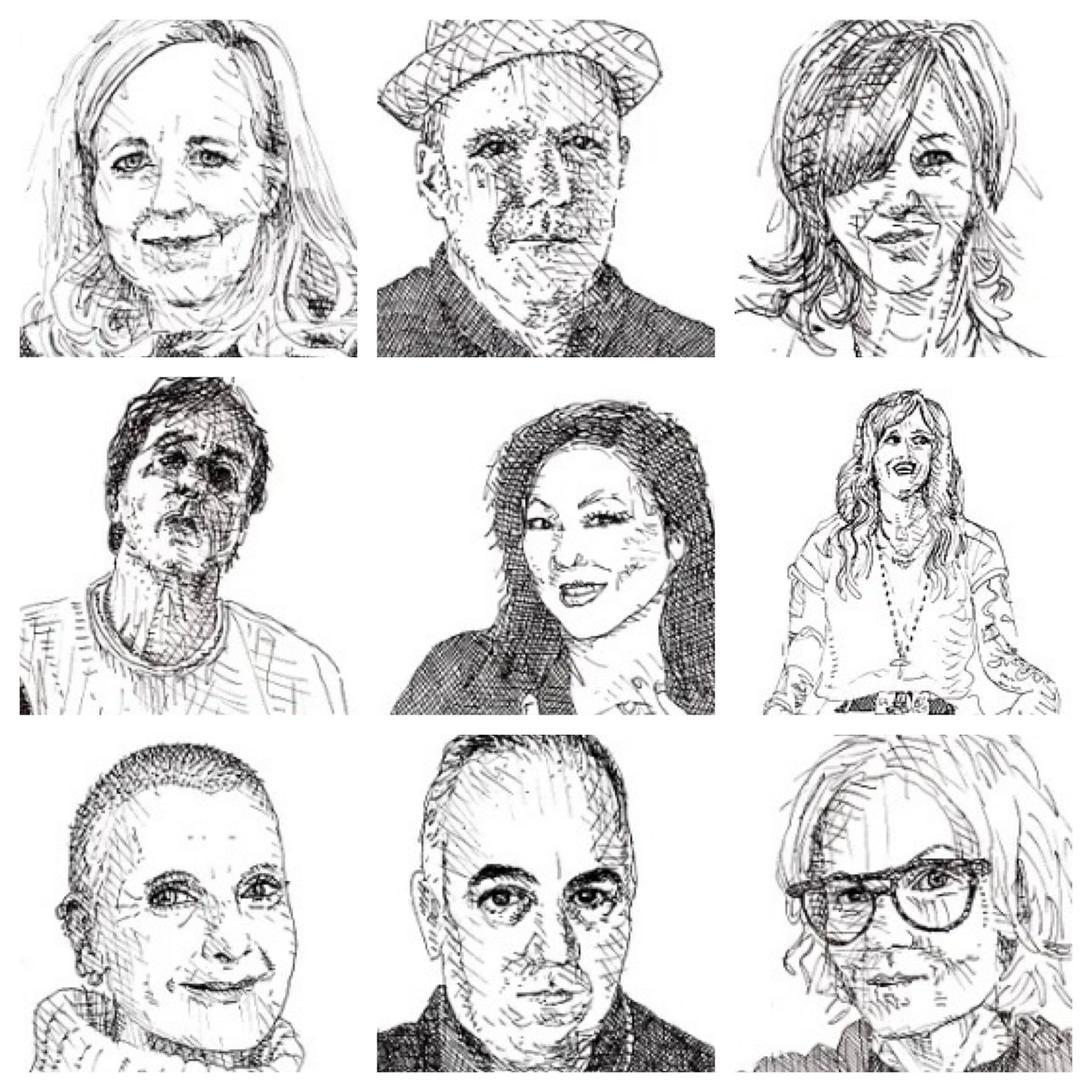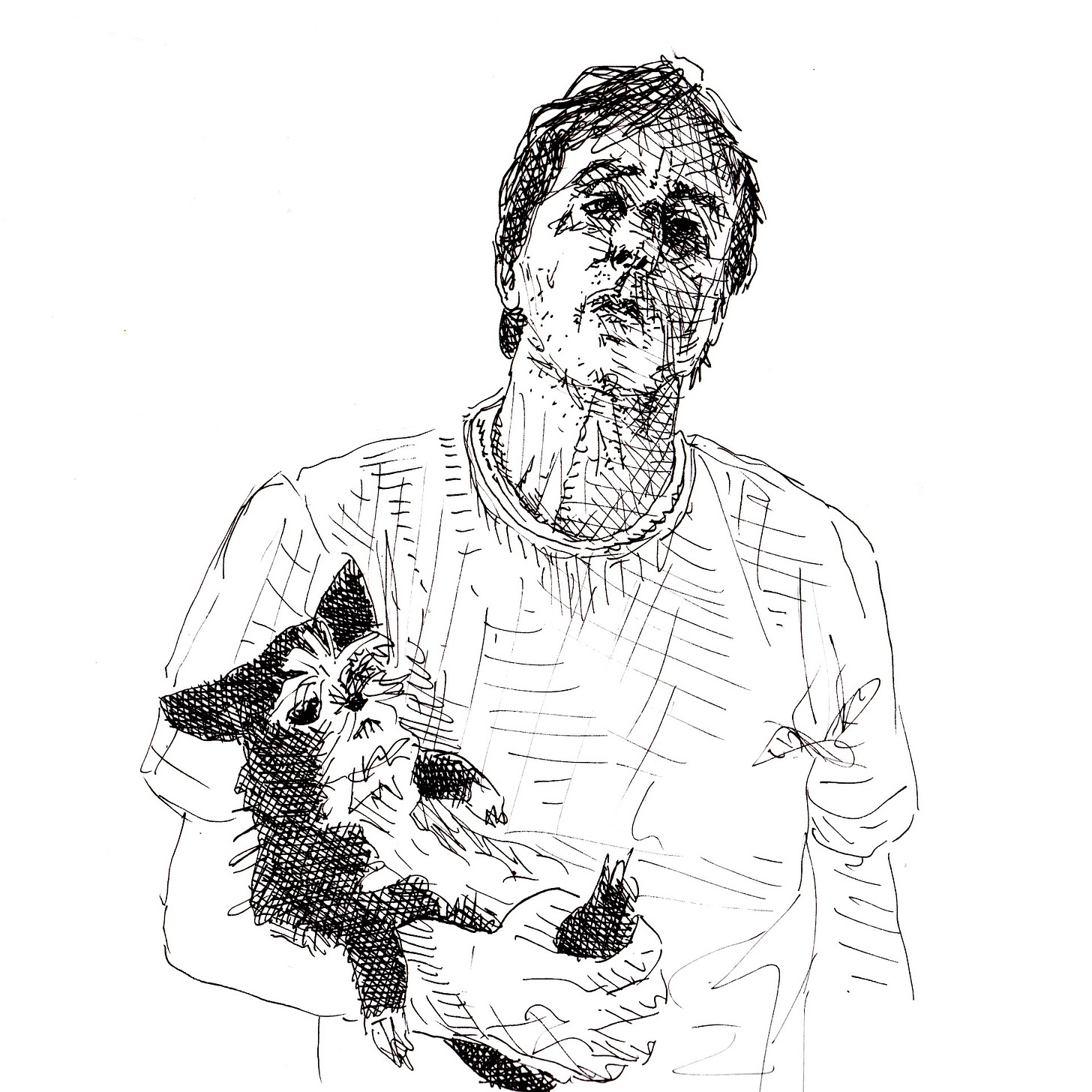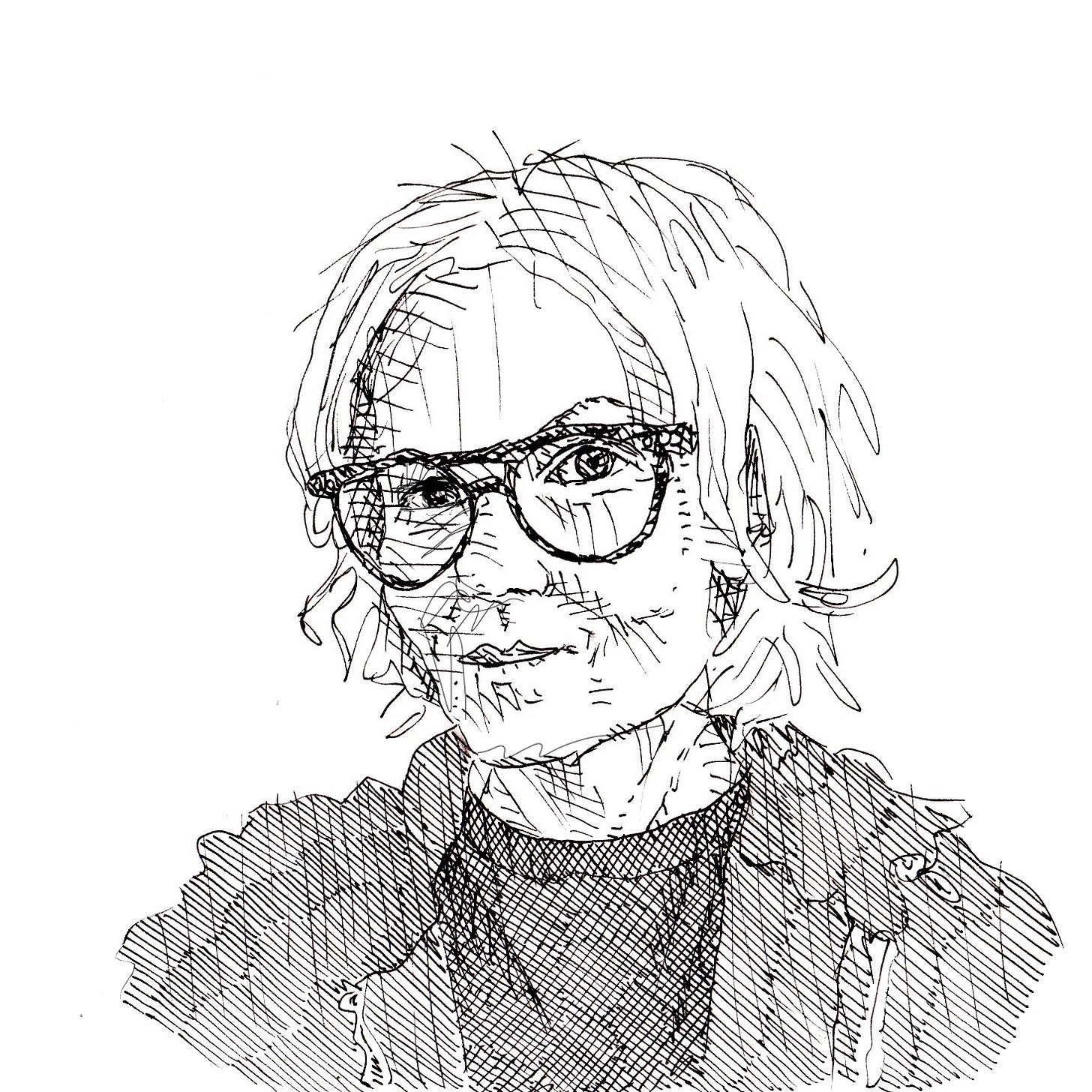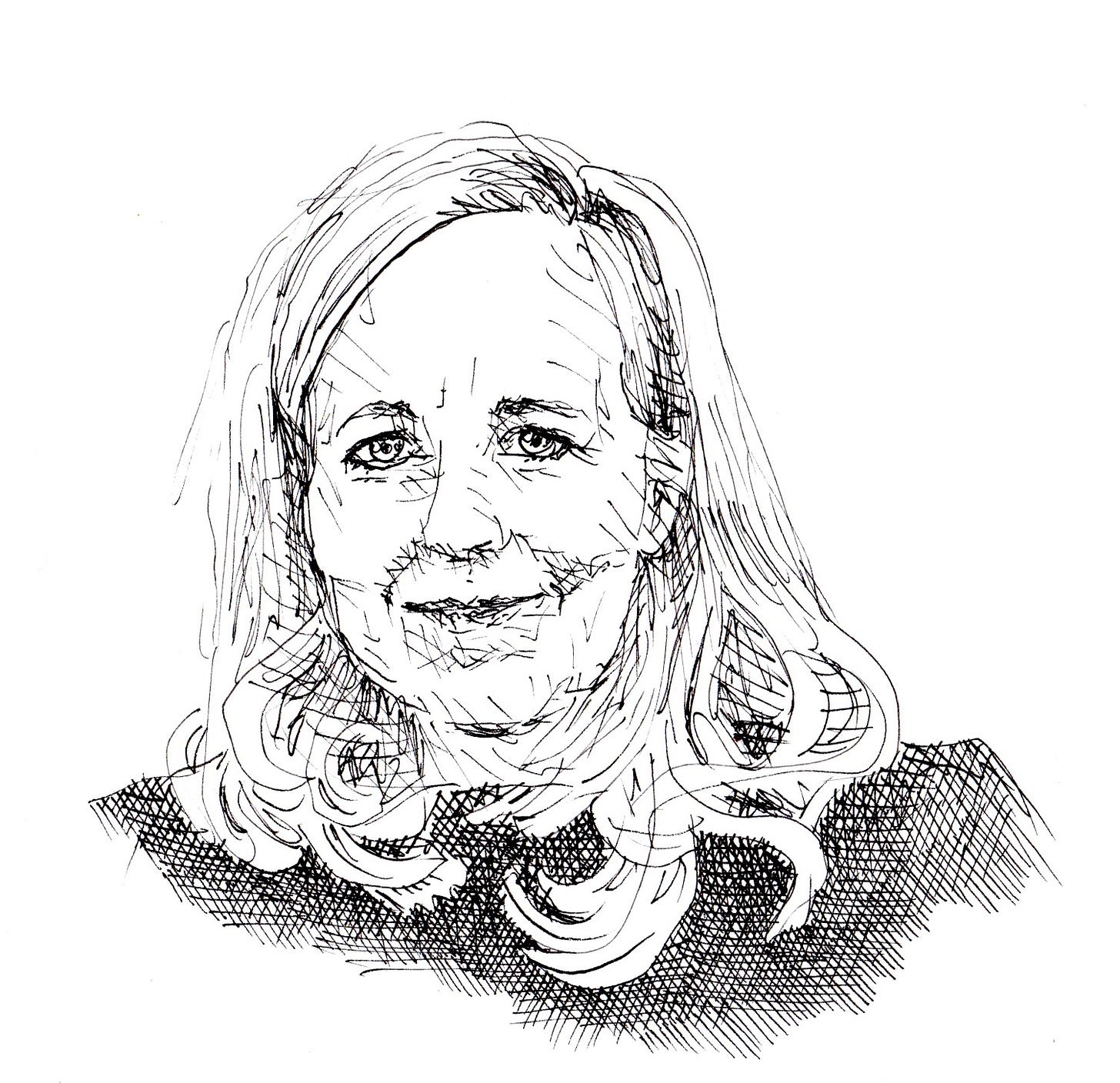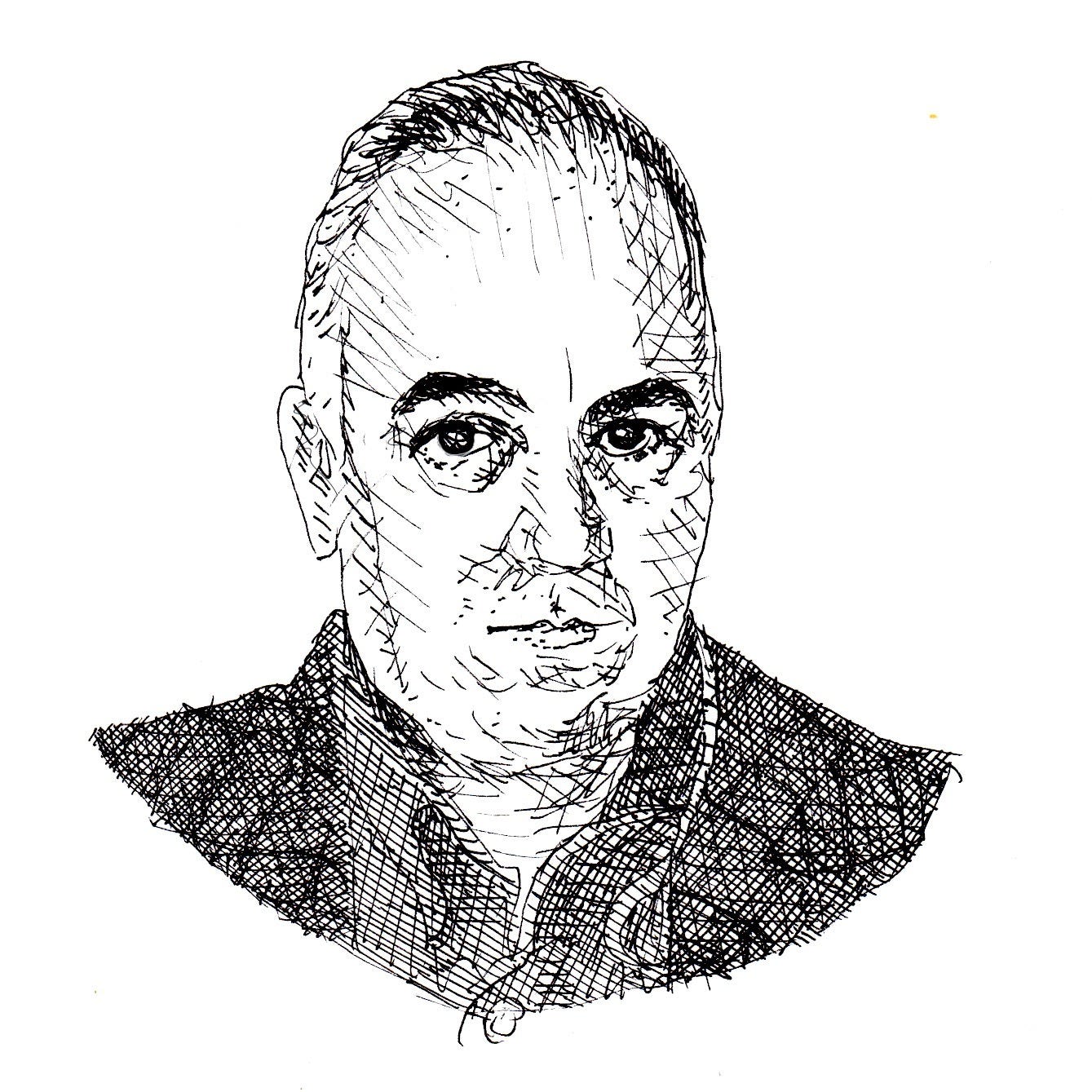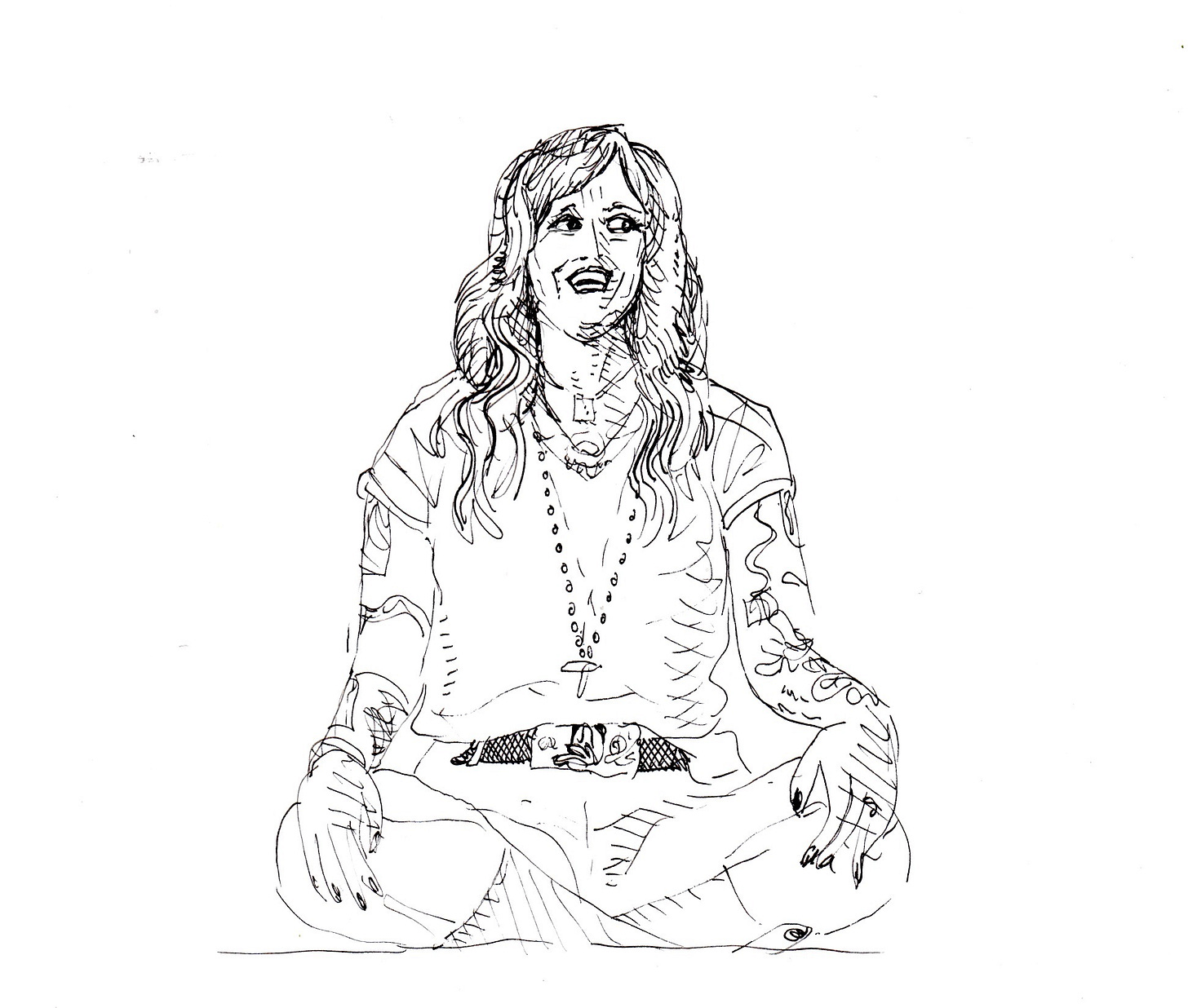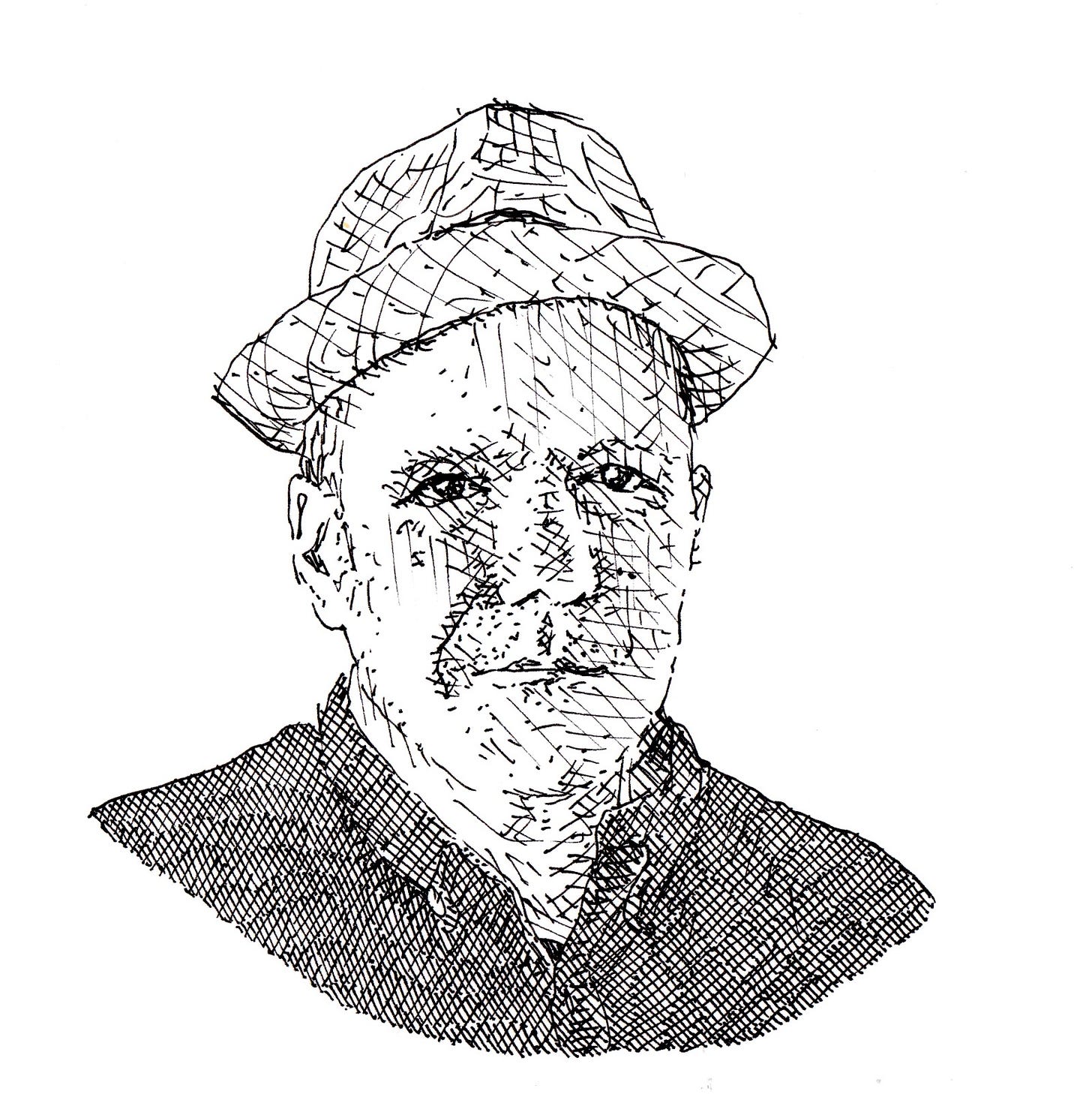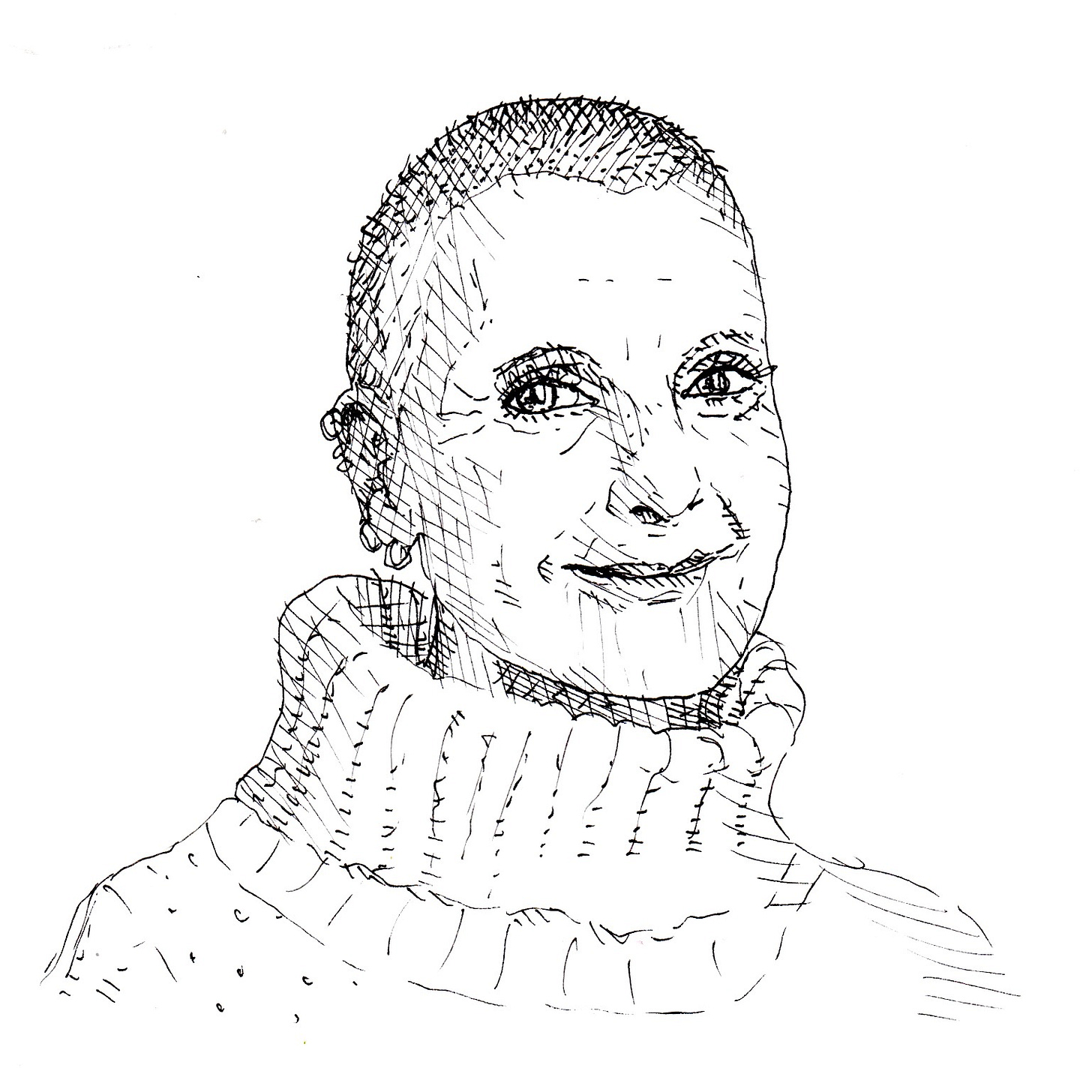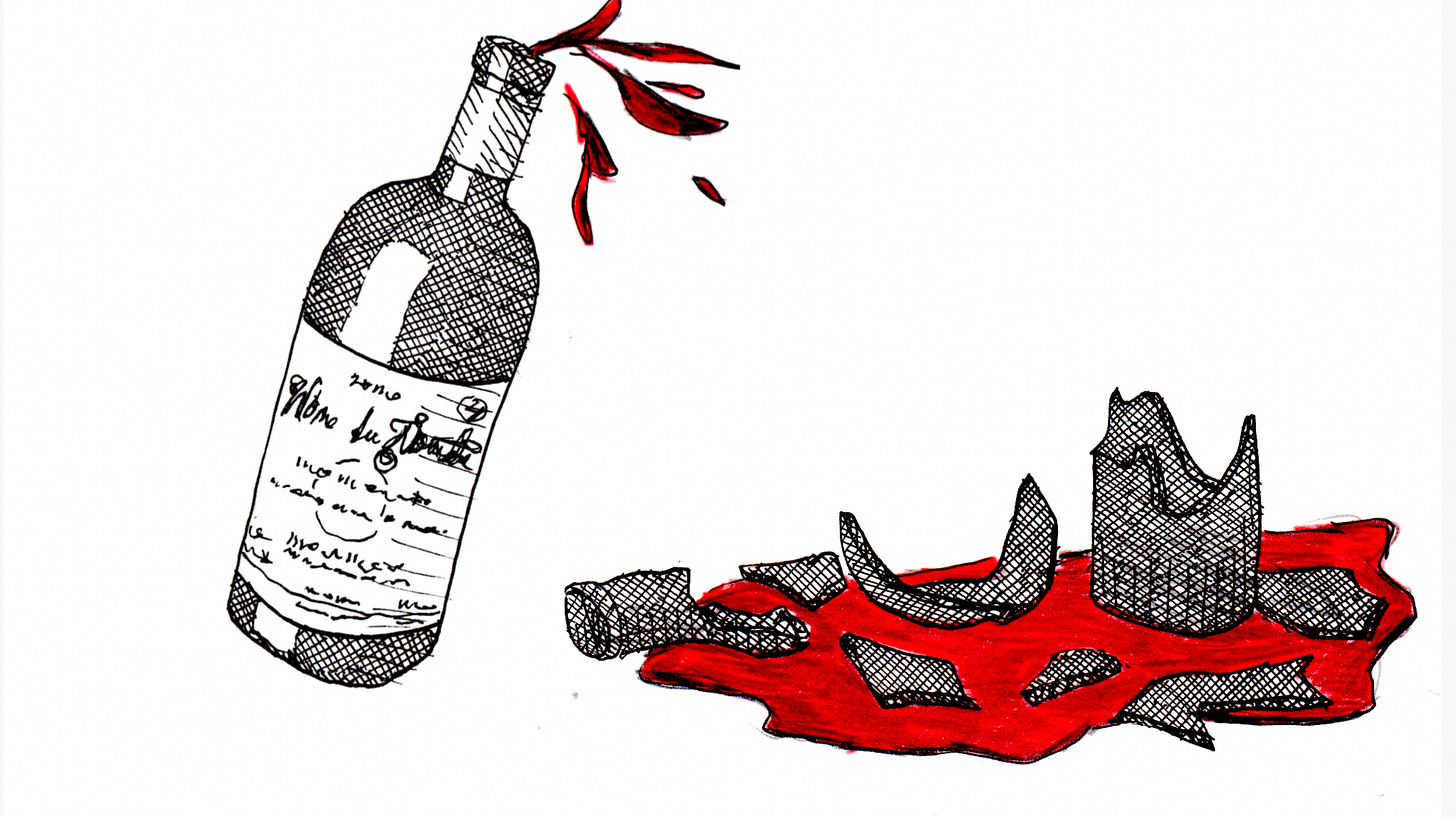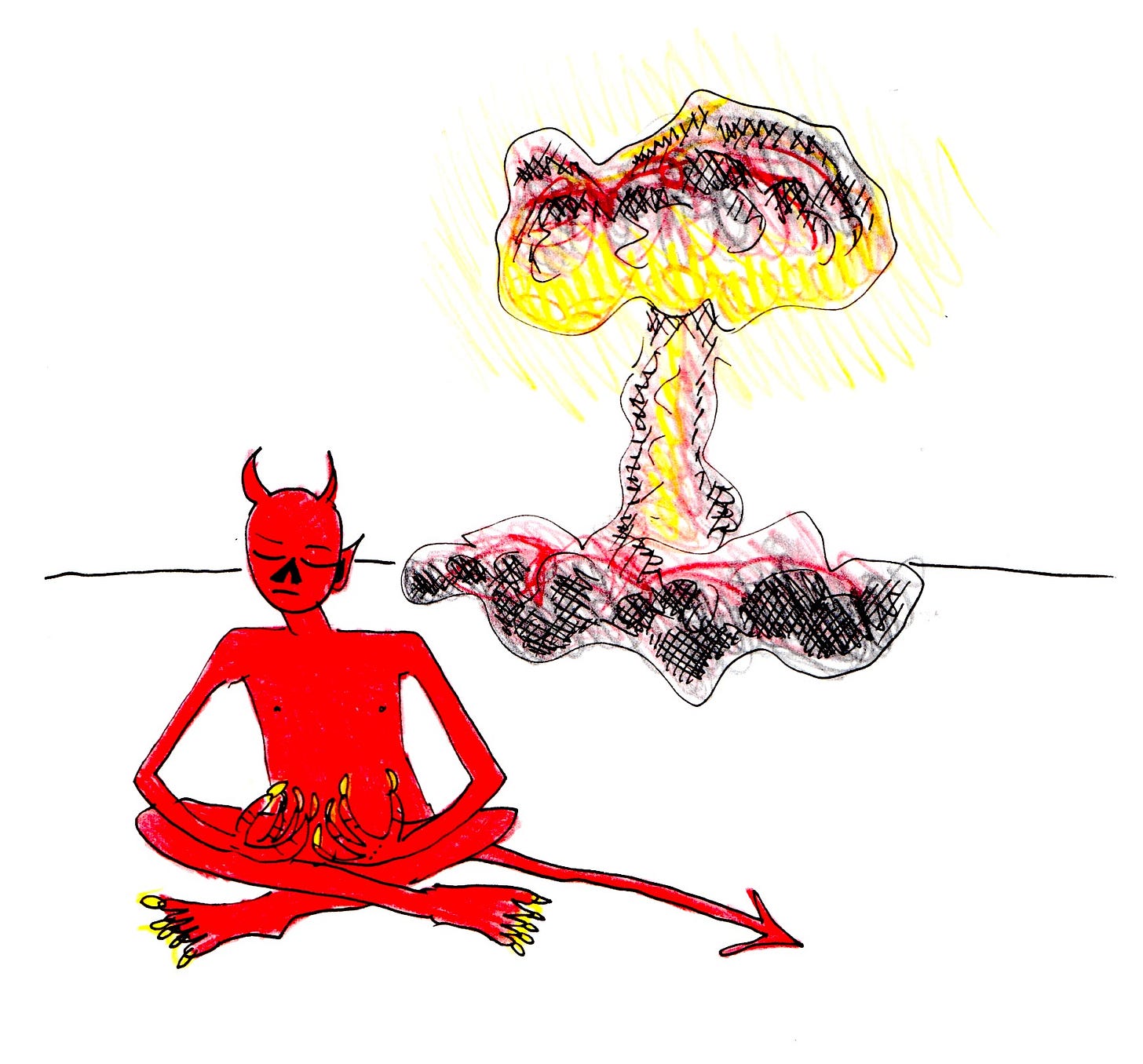Interviews with a Bunch of Older Sober People
A look back at another year of Sober Oldster questionnaires.
Good morning, readers. A small request: If our newsletter has helped you feel less wicked and alone, less shitty or afraid, then please consider financially supporting us. Subscribers gain access to the entire archive, the Sunday essay, the complete recommendations roundup, and the comprehensive rundown of my weekly recovery program.
We use your money to help cover the costs of all our editorial operations, including our freelancers, Edith’s illustrations, our meetings, and the production of the podcast.
Thank you for your continued support.
And, as always: If the cost is still prohibitive or you wish to send TSB to someone you love, contact us. We’ll happily pass along a free annual subscription to those who need it most.
I wonder sometimes if we went back to some of the Sober Oldsters who interviewed for this series if they’d change their answers — not because their previous ones were incomplete but because their recovery has evolved in some way, a distinct, profound shift in the way they interact with the world. I mention this because I know a couple of my answers would be different from when I did the questionnaire a year and half ago. Easy ones — my meeting schedule has changed, I now do 2-3 times per week, plus a new sponsor. My favorite memoir has changed, but is also exactly the same, yet I didn’t mention it for some reason: Night of the Gun by David Carr is the book that made sense for me both in early sobriety and now. And also — can I still be a monster? I don’t want to call myself a monster anymore. Progress.
Also, thanks so much to Sari Botton from Oldster for the collaboration and commitment to exposing her readers to TSB. Oldster is a magical publication, which taps into humanness and mortality in a way that is a constant comfort. Immense gratitude to her and to the readers of Oldster who’ve joined us here at TSB. Here’s to another year older, another year sober. —AJD
“It is said that alcoholics tend to be emotionally arrested at the level of maturity when they became serious problem drinkers. This was true for me; I had the emotional maturity of a young teenager when I got sober at 30. I had to learn how to be a grown-up—it didn’t help that I’d been a successful musician in a successful band throughout most of those years, which can be a very easy career to stay immature in. In sobriety I really had to grow up.”
“I walked into my first meeting in the days between Christmas and New Years in 1988. I was 28. That time of year used to be very hard for me, as it coincided with the anniversary of my mother’s suicide (I guess you could say that time of year was hard for her as well).”
“Looking back, I’m incredibly grateful for having spent so much time in supervised environments, chore charts and all. The structure was good, but the biggest gift might have been seeing so many people relapse—and go through a lot of trouble to relapse. One woman in my sober living house walked a mile in 100-degree Texas heat to a convenience store in order to buy liquor. Another drank Listerine. People ran away with nowhere to go. I saw the raw power of the disease.”
“In the months leading up to the end of my drinking career, the signs that I had a problem with alcohol were getting messier and louder and harder to ignore. My behavior while drunk involved lots of sloppy bad decisions, things that hurt me and other people, putting my career and safety at risk. I was already deeply unhappy, and alcohol whipped my smoldering depression into a dangerous conflagration, though I didn’t recognize it at the time.”
“When I think about what I’m most grateful for, I come back to the fact that I have a family—a wife and two children—who have never seen me not sober, who can’t really imagine what I would be like not sober. To have these people in my life who think of me just…as another person in the world living a life—very much not the way people thought of me before —I can’t imagine a gift greater than that, and that kind of puts a bow around everything I’m grateful for.”
“My first reaction to almost everything is ‘Fuck you.’ I almost never stay there but I almost always start there. That hasn’t changed, which for a long time I found really disappointing. Like, how in the world do I still think such consistently horrible things after all these years of WORKING ON MYSELF. But in my case, progress doesn’t look like receiving a personality transplant. It looks like the fact that yeah, I still start with ‘Fuck you,’ I just very seldom STAY there. The time between my reaction (which is still pretty shitty) to my response has gotten real short. Progress is seen in the speed at which I move out of ‘Fuck you.’”
“I try to be in gratitude every moment because I should be dead so many times over. The way I drink is I like to get fully plastered on two to three bottles of wine, then take a lot of opioids and benzodiazepines, then get into my car and drive to a violent man’s house.”
“At various points, it has been remarkably hard. For example, my sister died when I was about eight years clean and that overturned the apple cart completely. There was, then, a long journey through grief. And, accordingly, I had to retool my spiritual thinking such that ‘horrible bad news and loss’ could be part of the journey, no matter how sober I was. And, later, I lost jobs in sobriety, I got divorced, I lost a friendship here and there. It’s life, and if you live long enough, all the things that happen in a life will come to pass. Recovery gives us the tools for this, thank goodness.”
“With recovery, it’s possible to transcend your genetic and cultural destiny, is what I’m saying. If a person with a mind and a history as chaotic as mine can have a good and peaceful day—and can then string a whole bunch of those good days together, one day at a time, into a better life—then truly, anyone can.”
This monthly interview series is a collaboration between Oldster Magazine and The Small Bow.
RELATED: TSB POD INTERVIEW W/ SARI BOTTON
SHARE THIS POST WITH ANYONE WHO WANTS IT.
This is The Small Bow newsletter. It is mostly written and edited by A.J. Daulerio. And Edith Zimmerman always illustrates it. We need your support to keep going and growing.
We send it out every Tuesday and Friday. For $7 a month or $60 per year, you also get a Sunday issue and access to the full TSB archives.
If you’d like to check in with A.J. and learn more about our recovery meetings, here’s where he can be reached: ajd@thesmallbow.com.
Also, follow us on Instagram for updates and more illustrations from Edith. You can also support Edith directly!


